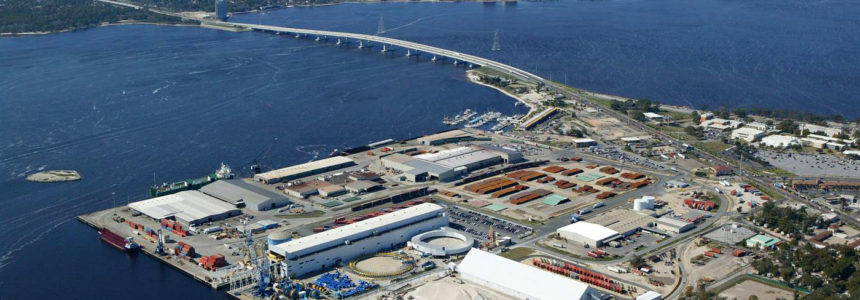News & Updates
We need to protect Florida’s vital seaports

Florida’s innovative and resilient seaports have been on the front lines of the pandemic, ensuring a steady flow of medical supplies, food and fuel to communities throughout the state.
Unfortunately, the refined governance and smooth operations at these ports, which has expedited the delivery of personal protective equipment (PPE), fresh fruits and vegetables, and most likely our latest Amazon orders, are facing uncertainty.
Special interest groups have convinced Tallahassee lawmakers to significantly change a nearly 200-year-old operating structure and remove local municipal control from ports in Panama City, Pensacola, St. Petersburg and Key West.
The consequences of such a dramatic change would be detrimental and challenging to the ports at any time. But it is happening just as local communities are trying to recover from a global pandemic, as well as natural disasters in some areas, like Hurricane Michael in Panama City.
Florida is home to 15 deep water seaports, and since before Florida’s 1845 statehood, each of these ports has been regulated by its local government. In fact, local government authority is the most common governance structure in every U.S. state with significant ocean access and lengthy shorelines. More importantly, Florida’s seaports build on local community support, integrate the efforts of localized logistics and freight firms, provide stable and predictable management structures, and respond quickly to market opportunities outside of political pressures.
Efforts in Tallahassee to take away local municipal governance at these four ports have made clear the goal of SB 426 and HB 267 is to overturn a decision by Key West voters last year that placed restrictions on cruise ships docking at the city’s port. Key West may be the target, but the unintended consequences of this bill will restrict Florida’s ability to recruit new business prospects and generate additional economic opportunities.
The economic footprint Florida’s seaports have on our state’s economy is significant. They support 900,000 direct and indirect jobs and contribute $117.6 billion to Florida’s economy through cargo and cruise activities.
If the goal of this bill is to preempt a local effort in one city, do not burden the remaining Florida ports with this untenable situation.
Ensuring that the operating structure and control of Florida’s seaports remain with their respective local governments is essential to keeping this economic engine sailing. Let’s protect Florida’s seaports.
See the op-ed in the following publications:

About the Author:
Doug Wheeler is President & CEO of the Florida Ports Council, the professional association of Florida’s public seaports, providing advocacy, leadership and research on seaport-related issues before state and federal government.
